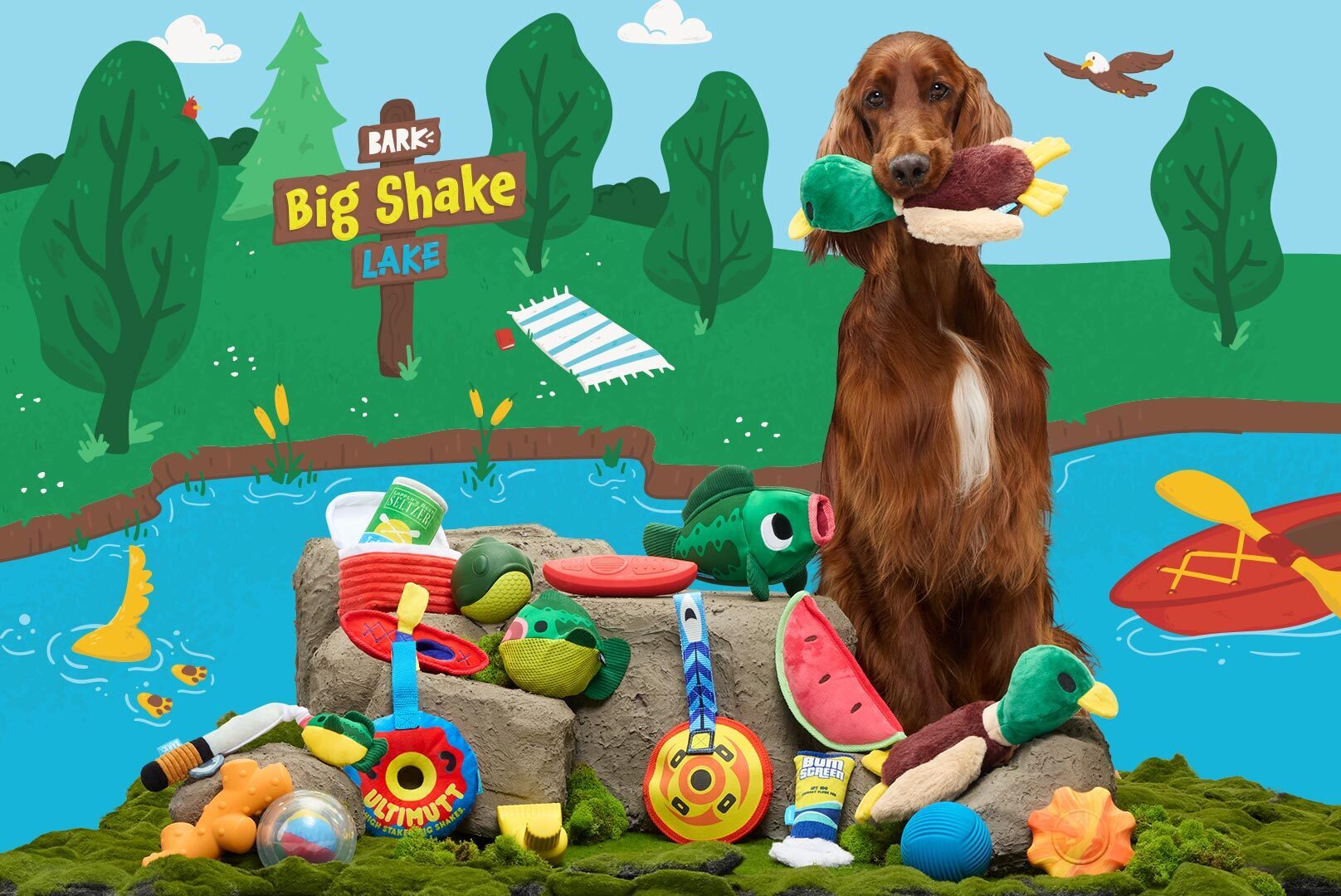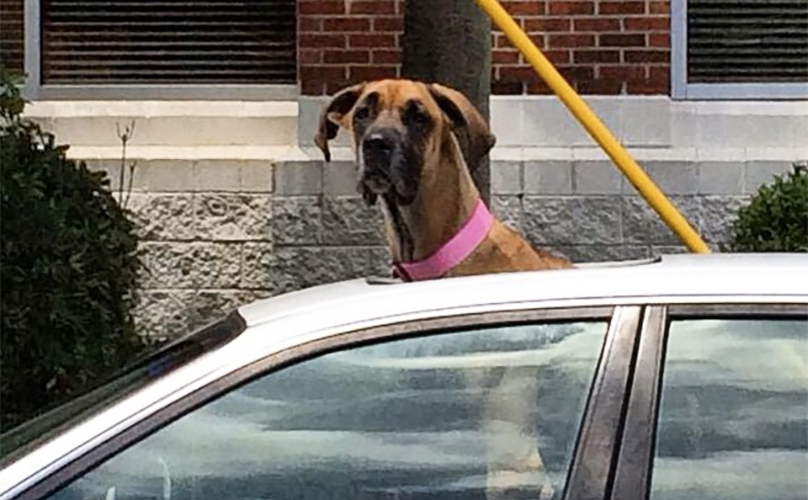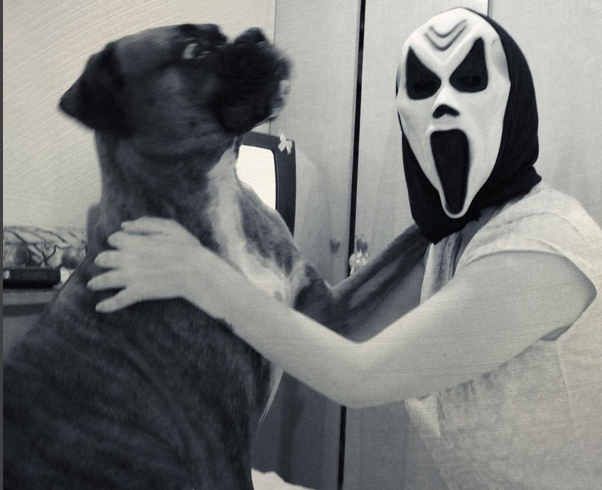When I graduated high school, my aunt gave me a card that had a semi-famous graduation article written by Chicago Tribune writer Mary Schmich tucked neatly inside. You may have read it — it’s the one that stresses the importance of wearing sunscreen and enjoying your youth. I loved it so much I framed it, never realizing that one of its lines would one day change my life forever:
“The real troubles in your life are apt to be things that never crossed your worried mind, the kind that blindside you at 4 p.m. on some idle Tuesday.”
It was 4pm on an idle Tuesday when I received the phone call that no one wants to get. A recent biopsy had revealed that I had cancer, and they weren’t sure which stage. I was 22 years old.
I had a dog at the time, a Terrier mix we’d rescued named Jack (after Jack Sparrow because… why not?). Jack spent the first few weeks at our home trying every which way to get the heck away from us. He’d rush at the door every time it was opened. He hated going for walks and just generally seeemed terrified of us.


He settled in gradually and, after a few trips hanging out with Animal Control (luckily he was found quickly every time he ran away) he seemed to decide that he liked us. But all contact was always on Jack’s terms. If he wanted to cuddle, he’d let you know, and expect an immediate cuddle session. If he wanted to sleep in my bed, he was sleeping in my bed (often stealing the pillow), but he was so sweet we hardly minded.
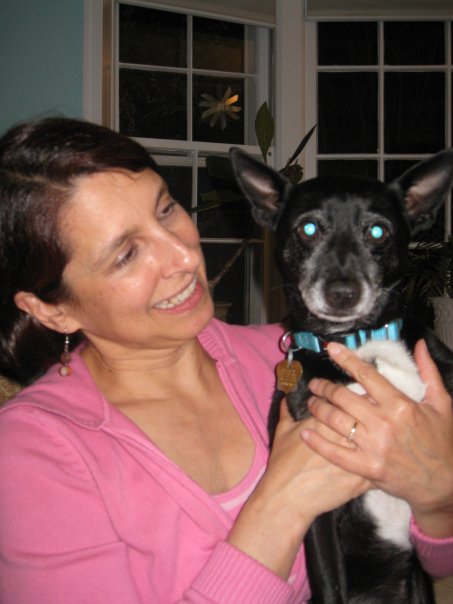

Right before that fateful day however, I noticed that Jack had seemed aloof. While he usually spent most nights sleeping at the foot of my bed, he hadn’t stopped by in weeks. This all changed dramatically after that phone call. He didn’t leave my side for weeks, and it was as if he knew, as if he’d heard the phone call and knew that I needed him now more than ever.
There are many studies exploring the therapeutic effects of dogs, some specifically for cancer. The American Humane Association is currently conducting a large-scale study on the effects of canine therapy with children suffering from cancer. AHA hopes to be able to prove that a dog’s presence can make the lives of cancer patients and their families more bearable, more enjoyable and offer a welcome respite from the day-to-day troubles a cancer patient has to go through.
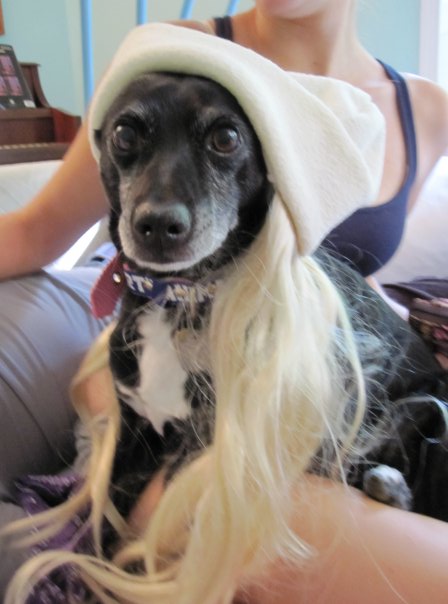

Will AHA be able to prove, scientifically, the benefits a dog can bring to patients going through treatment for this horrible disease? Whether it can be quantified or not remains to be seen. I know only what I personally have experienced and I truly, truly, believe that not only do dogs understand what’s going on, but their presence is just what a patient often needs.
My first night after that fateful phone call I sat on my bed, unsure of what to do. How do you sleep after getting news like that? How was I ever going to sleep again? An even worse thought crossed my mind — Was I going to die? In the midst of all the thinking I was doing, I had barely noticed the tiny black body that had climbed onto my bed and put his head in my lap as if to say, “I’m here, everything’s going to be okay.” Just petting Jack that night calmed me down.
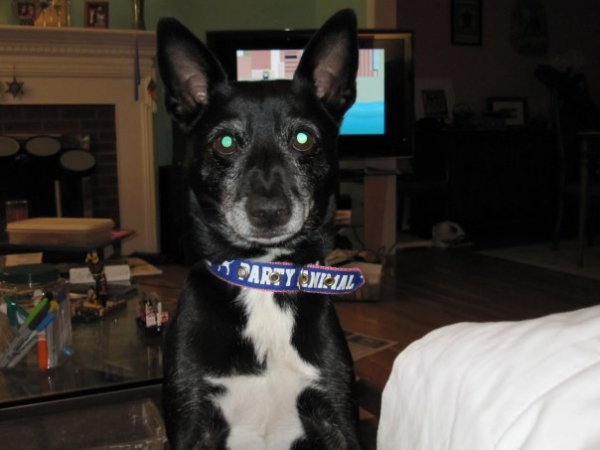

National Geographic published a big feature called “The Healing Power of Dogs” which explored topics like why, exactly, petting Jack that night had such a calming effect on me. It turns out that petting a pup releases a hormone called oxytocin which is responsible for feelings of love and bonding.
The feature also explored whether dogs can feel empathy (which is still hotly debated). Based solely on Jack’s actions I believe they can, and if it’s not exactly empathy as a scientist might describe it, then I’m okay with that. I just know it helps and that’s all that should matter.
Through my subsequent surgery and treatment (I was very lucky and it turned out it had been caught at an early stage, no chemo required) Jack was right by my side. When I was sprawled out on the couch sick to my stomach from painkillers. Jack was there. During my lowest moments when I couldn’t help but cry, I would talk to Jack and tell him all about my fears. It was nice to have that sort of listener in my life, after all my parents and friends were so worried I wouldn’t often tell them how scared I truly was. You’re supposed to be strong after a cancer diagnosis, Jack was the only one who knew that I had my doubts.


I hope these studies can successfully prove that dogs can help patients, because with that kind of proof it could open up all sorts of funding for future programs. The lives of children suffering from cancer could be drastically improved, all from being visited by a furry friend.



